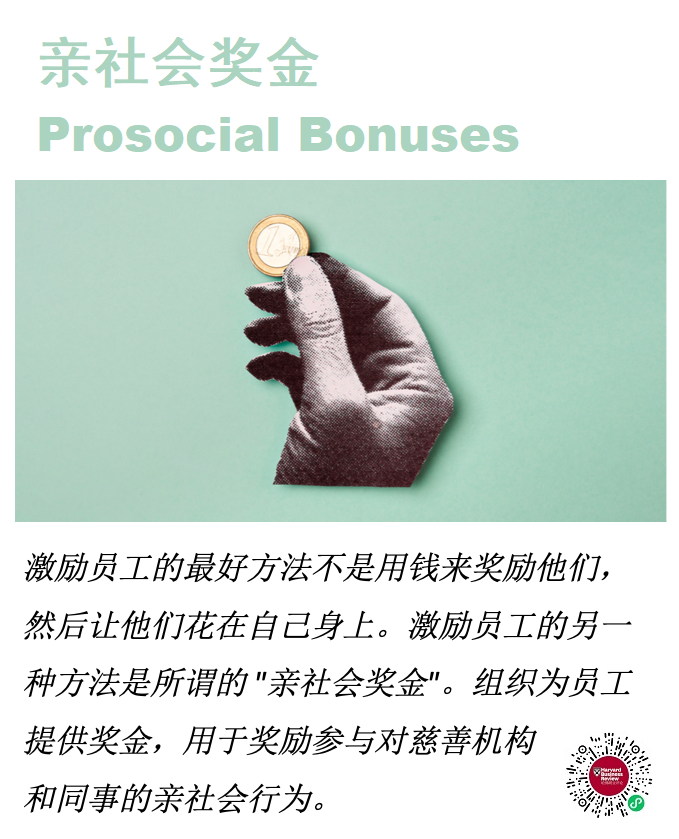
「释义」
激励员工的最好方法不是用钱来奖励他们,然后让他们花在自己身上。激励员工的另一种方法是所谓的 "亲社会奖金"。组织为员工提供奖金,用于奖励参与对慈善机构和同事的亲社会行为。
亲社会行为又叫利社会行为,是指符合社会希望并对行为者本身无明显好处,而行为者却自觉自愿给行为的受体带来利益的一类行为。一般亲社会行为可以分为利他行为和助人行为。
「应用场景」
首先,澳大利亚国民银行给他们的一些员工钱,让他们花在慈善机构上。这不同于经典的企业社会责任模式,即公司向通常由首席执行官选定的慈善机构一次性捐出一笔钱。在这种方法中,公司无法衡量这种善意行为对公司内部动态或公众形象的影响。作为一次性捐款的替代方案,银行给每个员工发放了自己的慈善券,并鼓励他们把钱花在自己关心的事业上,无论是资助癌症研究还是拯救澳大利亚鸭子。在兑换了这些亲社会奖金后,员工们表示对自己的工作更加满意,整体上也更加快乐。
First, National Australia Bank gave some of their employees money to spend on charities. This differs from the classic corporate social responsibility model, where the company donates a lump-sum amount of money to a charity usually selected by the CEO. In this method, the company cannot measure the impact of this act of kindness on the dynamics within the firm or on public image. As an alternative to lump-sum donation, the bank gave each employee their own charity voucher and encouraged them to spend it on a cause that they cared about, whether it was to fund cancer research or save Australian ducks. After redeeming these prosocial bonuses, employees reported being more satisfied with their jobs and happier overall.
以上文字选自
The Bonus Employees Really Want, Even If They Don’t Know It Yet
拉林·阿尼克(Lalin Anik)乔迪·奎德巴赫(Jordi Quoidbach)| 文
马冰仑 丨编辑




